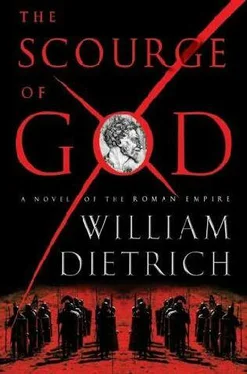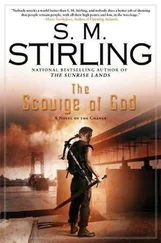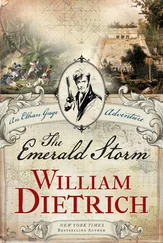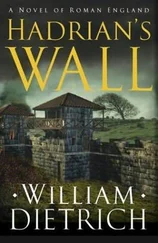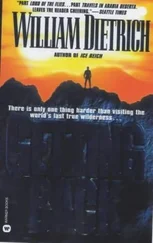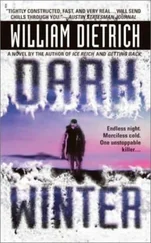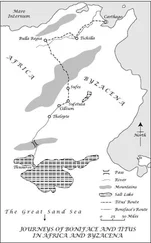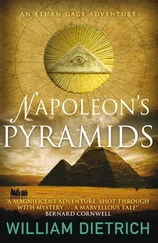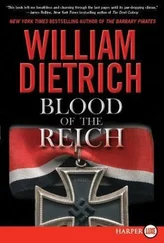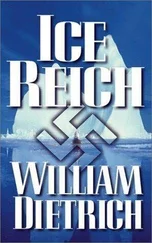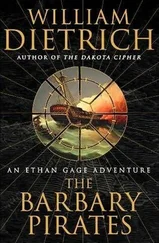William Dietrich - The Scourge of God
Здесь есть возможность читать онлайн «William Dietrich - The Scourge of God» весь текст электронной книги совершенно бесплатно (целиком полную версию без сокращений). В некоторых случаях можно слушать аудио, скачать через торрент в формате fb2 и присутствует краткое содержание. Жанр: Фэнтези, на английском языке. Описание произведения, (предисловие) а так же отзывы посетителей доступны на портале библиотеки ЛибКат.
- Название:The Scourge of God
- Автор:
- Жанр:
- Год:неизвестен
- ISBN:нет данных
- Рейтинг книги:5 / 5. Голосов: 1
-
Избранное:Добавить в избранное
- Отзывы:
-
Ваша оценка:
- 100
- 1
- 2
- 3
- 4
- 5
The Scourge of God: краткое содержание, описание и аннотация
Предлагаем к чтению аннотацию, описание, краткое содержание или предисловие (зависит от того, что написал сам автор книги «The Scourge of God»). Если вы не нашли необходимую информацию о книге — напишите в комментариях, мы постараемся отыскать её.
The Scourge of God — читать онлайн бесплатно полную книгу (весь текст) целиком
Ниже представлен текст книги, разбитый по страницам. Система сохранения места последней прочитанной страницы, позволяет с удобством читать онлайн бесплатно книгу «The Scourge of God», без необходимости каждый раз заново искать на чём Вы остановились. Поставьте закладку, и сможете в любой момент перейти на страницу, на которой закончили чтение.
Интервал:
Закладка:
I kicked my horse between him and Ilana, and he swung, hard, and narrowly missed. I felt the wind of the passage.
The massive blade cracked the rim of my saddle, nearly buckling Diana.
And broke. The old iron shattered into fragments that flew like a broken glass, spinning at the circle of startled Huns and making them duck in superstitious horror. The Hun king looked at the iron hilt in disbelief.
“You have cursed yourself!” Anianus shouted.
Then we kicked and bent low over our horses. A Hun had stepped out to grab my reins, and I rode over him. Then another caught at Ilana, dragging. I looked. The German girl Guernna! My love clubbed with her fist and the slave dropped away, braids flapping as she rolled.
The wall of the inner laager loomed, and we made for the low wagon tongues. Now a couple arrows buzzed past but they were high, the archers fearful of hitting fellow Huns.
Shouts rang out, but they were ones of confusion. Who had shot Skilla? Who had Edeco killed? What had seemed to be an orderly parley had turned into chaos.
I glanced back. Attila and Edeco were frozen, staring at the shards of the sword. My file had done its work.
I let Ilana get ahead of me and saw her horse bunch and jump. In an instant, I followed her over the wagon trace.
Now we had the inner laager obscuring and shielding us from the Huns at Attila’s tent and we sprinted for the outer one, some Huns just now waking up, groggily staggering to their feet as we galloped past.
We blasted through a campfire, scattering pots and people, and came to the second laager. A few Huns moved to stop us but they were bowled over. Again we leaped, hooves clicking as they nicked the edges of the wagons, and then we were onto the battlefield beyond, racing over the forms of the dead. Something winked up high, and I glanced up to see missiles falling. “Arrows!” I shouted.
They hissed as they fell around us, but none struck.
Now Romans were shooting in return. Ilana rode grimly on, arrows plunking the ground, her gaze horrified as she saw closely for the first time the full butchery that had occurred, the endless carpet of bodies. We rode fast amid and over them. Then we were past even that horror, men cheering Anianus, and finally reined up at the compound of Aetius. Winded, I looked back in wonder. Attila’s laager was two miles safely behind, and Ilana was flushed and bright beside me.
We were free.
The Roman general was already mounted and in armor, ready for battle if it came to that. “What happened?”
“Skilla saved us,” Zerco said.
“And the sword broke,” Anianus added. “A sign from God.”
The general nodded. “Indeed.” He smiled knowingly at me.
“When I held it to Attila’s throat I feared it might break instead of cut.”
“Attila’s throat!”
“It’s called diplomacy, general. He’s alive, demoralized, and beaten, as you wished.”
Aetius shook his head, as dazzled as I by the turn of events. “And this is the woman you were ready to risk whole nations for?”
“You helped save her from burning.”
“I can see why. So, what will Attila do next, young diplomat?”
I took breath and considered. “He seemed in shock at the battle and at the shattering of the sword. If you give him the chance, I think he’ll withdraw.”
“Bishop, do you agree?”
“I think his followers will take its breakage as evidence of Christian power, commander. I’d hold my attack. If you advance, you may win or lose, but if you wait . . .”
“I don’t think men will follow my advance. They’re too sickened.”
“Then guard your lines, gather your dead, and pray. What you began yesterday with your victory, Alabanda has finished today with that sword.”
I was reeling with exhaustion, sorrow, and exultation.
Skilla dead, the sword broken, Ilana back, Attila beaten . . .
She put her hand on my arm. “Let’s go home,” she whispered.
But where, after all we’d seen and done, was home?
Once more the horizon was filled with smoke, but this time of retreat, not advance. Attila did not ignite his pyre, but he burned surplus wagons and the plundered goods that were too numerous for his depleted army to carry. Then he started back the way he’d come, his invasion of Gaul over. Aetius followed slowly and at careful distance, not anxious to provoke another fight. The Visigoths peeled away to take their fallen king back to Tolosa. Anthus rode out with his Franks to solidify his claim. The huge assembly was breaking up.
The thunderclouds rumbled on and on and then finally let loose a torrent of rain that began to wash away the bloody pollution of the tiny brook. Armor began to rust, bones to powder, seeds to sprout. The greatest struggle of the age began to sink slowly into the earth.
Zerco and Julia elected to remain in the entourage of Aetius. “I’m too malformed to live an ordinary life,” he told me, “and too easily bored to lead a serious one. My future is with the general.”
“It’s still a dangerous road.”
“But not boring. See if you don’t join me on it, after you farm a year or two.”
Aetius had given ample money for my services, and offered far more if I’d stay and serve as aide and diplomat. I was not tempted. Ilana and I went west.
I will say little of our reunion, as it was a private thing, except there were a thousand things to say and a thousand things that could go unsaid. Anianus married us in a grove of poplar. We clung to each other afterward like limpets holding fast to a rock against a raging sea, until our lovemaking left us sated and exhausted. Then we rode with the bishop back toward Aurelia, away from Attila.
What were we looking for? We didn’t know, and scarcely spoke of it. There were a thousand depopulated farms we could have stopped at, but each seemed to hold too many memories of the families who had lived there. So we came to Aurelia and passed by its battlements, finally taking a boat down the Loire River. How lazy the summer current was, and how soothing! When we met people who wanted to share rumors of the movement of armies, we ignored them.
We didn’t want to know.
At last we stopped at a high-banked island in the river, a mile-long refuge from the tumult of the world, its grass tall and yellow and the air golden with late summer. Flowers spilled down its banks, birds flitted through the lacy trees, and insects gave a soft buzz. We walked its length, burrs of seeds clinging to our clothes.
My purse was enough to hire labor to build a house and farm, I judged. Here was the land I’d fought for, against all expectation, and here new nations were rising from the ashes of the old. The West had been saved but changed, ir-revocably. The Empire was passing. It had fought its last great battle. Something different-something we and our children would forge-was taking its place.
We walked the meadows of the island to choose a house site, eating wild apples in the sun. My initial preference was for its eastern end. “So we can look back to where we came from,” I told Ilana.
She shook her head, walking me back through the trees to the island’s western point, facing the warm afternoon sun.
“I want to look to the future,” she whispered.
So we did.
EPILOGUE
Attila was defeated at the battle of Chalons, in A.D. 451, but at Aetius’s urging was not destroyed. The balance of power that “the Last of the Romans” tried to achieve among the barbarians required that the Huns be contained but not extinguished. Had Aetius not used Hun warriors many times to chastise other tribes? Did Attila’s threat not justify the continuation of the Roman Empire? It was the grimmest kind of realpolitik, but wise in its realism. Attila would never truly recover from Chalons, and in all the centuries hence, no eastern barbarian would ever penetrate that far again. The alliance had saved Europe.
Читать дальшеИнтервал:
Закладка:
Похожие книги на «The Scourge of God»
Представляем Вашему вниманию похожие книги на «The Scourge of God» списком для выбора. Мы отобрали схожую по названию и смыслу литературу в надежде предоставить читателям больше вариантов отыскать новые, интересные, ещё непрочитанные произведения.
Обсуждение, отзывы о книге «The Scourge of God» и просто собственные мнения читателей. Оставьте ваши комментарии, напишите, что Вы думаете о произведении, его смысле или главных героях. Укажите что конкретно понравилось, а что нет, и почему Вы так считаете.
